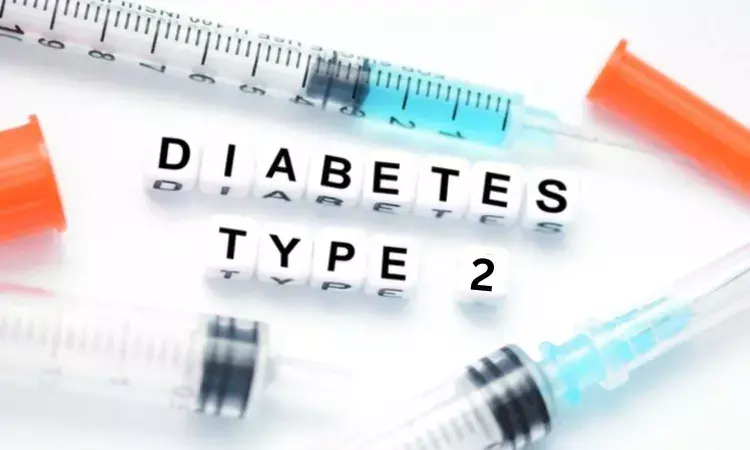- Home
- Medical news & Guidelines
- Anesthesiology
- Cardiology and CTVS
- Critical Care
- Dentistry
- Dermatology
- Diabetes and Endocrinology
- ENT
- Gastroenterology
- Medicine
- Nephrology
- Neurology
- Obstretics-Gynaecology
- Oncology
- Ophthalmology
- Orthopaedics
- Pediatrics-Neonatology
- Psychiatry
- Pulmonology
- Radiology
- Surgery
- Urology
- Laboratory Medicine
- Diet
- Nursing
- Paramedical
- Physiotherapy
- Health news
- Fact Check
- Bone Health Fact Check
- Brain Health Fact Check
- Cancer Related Fact Check
- Child Care Fact Check
- Dental and oral health fact check
- Diabetes and metabolic health fact check
- Diet and Nutrition Fact Check
- Eye and ENT Care Fact Check
- Fitness fact check
- Gut health fact check
- Heart health fact check
- Kidney health fact check
- Medical education fact check
- Men's health fact check
- Respiratory fact check
- Skin and hair care fact check
- Vaccine and Immunization fact check
- Women's health fact check
- AYUSH
- State News
- Andaman and Nicobar Islands
- Andhra Pradesh
- Arunachal Pradesh
- Assam
- Bihar
- Chandigarh
- Chattisgarh
- Dadra and Nagar Haveli
- Daman and Diu
- Delhi
- Goa
- Gujarat
- Haryana
- Himachal Pradesh
- Jammu & Kashmir
- Jharkhand
- Karnataka
- Kerala
- Ladakh
- Lakshadweep
- Madhya Pradesh
- Maharashtra
- Manipur
- Meghalaya
- Mizoram
- Nagaland
- Odisha
- Puducherry
- Punjab
- Rajasthan
- Sikkim
- Tamil Nadu
- Telangana
- Tripura
- Uttar Pradesh
- Uttrakhand
- West Bengal
- Medical Education
- Industry
Low-Dose Sulphonylurea and DPP4 Inhibitor Combo lowers blood sugar by augmentating beta cell function

In the pursuit of refining diabetes treatment, a recent unblinded randomized crossover study explored the potential synergy between low-dose sulphonylureas (SU) and dipeptidyl peptidase-4 inhibitors (DPP4i). This combination aimed to augment the classical incretin effect and enhance glucose sensitivity in individuals with type 2 diabetes (T2DM). This study was published in The Journal Of Clinical Endocrinology And Metabolism by Cordiner and colleagues.
Low-dose sulphonylureas have demonstrated the ability to enhance the incretin effect and increase glucose sensitivity. The study aimed to evaluate whether combining low-dose sulphonylurea with a DPP4 inhibitor could produce an additive effect in improving glucose control.
Conducted at the Clinical Research Centre, University of Dundee, the unblinded randomized crossover study involved 30 participants with T2DM treated with diet or metformin. Fourteen-day intervention blocks included control, gliclazide 20 mg (SU), sitagliptin 100 mg (DPP4i), or the combination of both (SUDPP4i). The primary outcome was the effect of treatment on beta-cell glucose sensitivity.
Key Findings:
Additive Glucose Lowering: The combination of low-dose sulphonylurea and DPP4 inhibitor exhibited an additive effect on glucose lowering.
Mean glucose AUC (mmol/l): Control 11.5, DPP4i 10.2, SU 9.7, SUDPP4i 8.7 (p < 0.001).
Glucose sensitivity (pmol min-1 m-2mM-1): Control 71.5, DPP4i 75.9, SU 86.3, SUDPP4i 94.1 (p = 0.04).
Gender Differences: The additive effect was observed in men but not in women.
Safety Measures: Glucose time in range <3 mmol/l on continuous glucose monitoring was unaffected, ensuring the safety of the combination.
The study suggests that combining low-dose sulphonylurea with a DPP4 inhibitor has a potent glucose-lowering effect through the augmentation of beta-cell function. Further exploration through a double-blind randomized controlled trial is warranted to formalize the efficacy and safety of this combination, potentially offering a positive alternative to traditional sulphonylurea treatment in diabetes management.
Reference:
Dr Riya Dave has completed dentistry from Gujarat University in 2022. She is a dentist and accomplished medical and scientific writer known for her commitment to bridging the gap between clinical expertise and accessible healthcare information. She has been actively involved in writing blogs related to health and wellness.
Dr Kamal Kant Kohli-MBBS, DTCD- a chest specialist with more than 30 years of practice and a flair for writing clinical articles, Dr Kamal Kant Kohli joined Medical Dialogues as a Chief Editor of Medical News. Besides writing articles, as an editor, he proofreads and verifies all the medical content published on Medical Dialogues including those coming from journals, studies,medical conferences,guidelines etc. Email: drkohli@medicaldialogues.in. Contact no. 011-43720751


